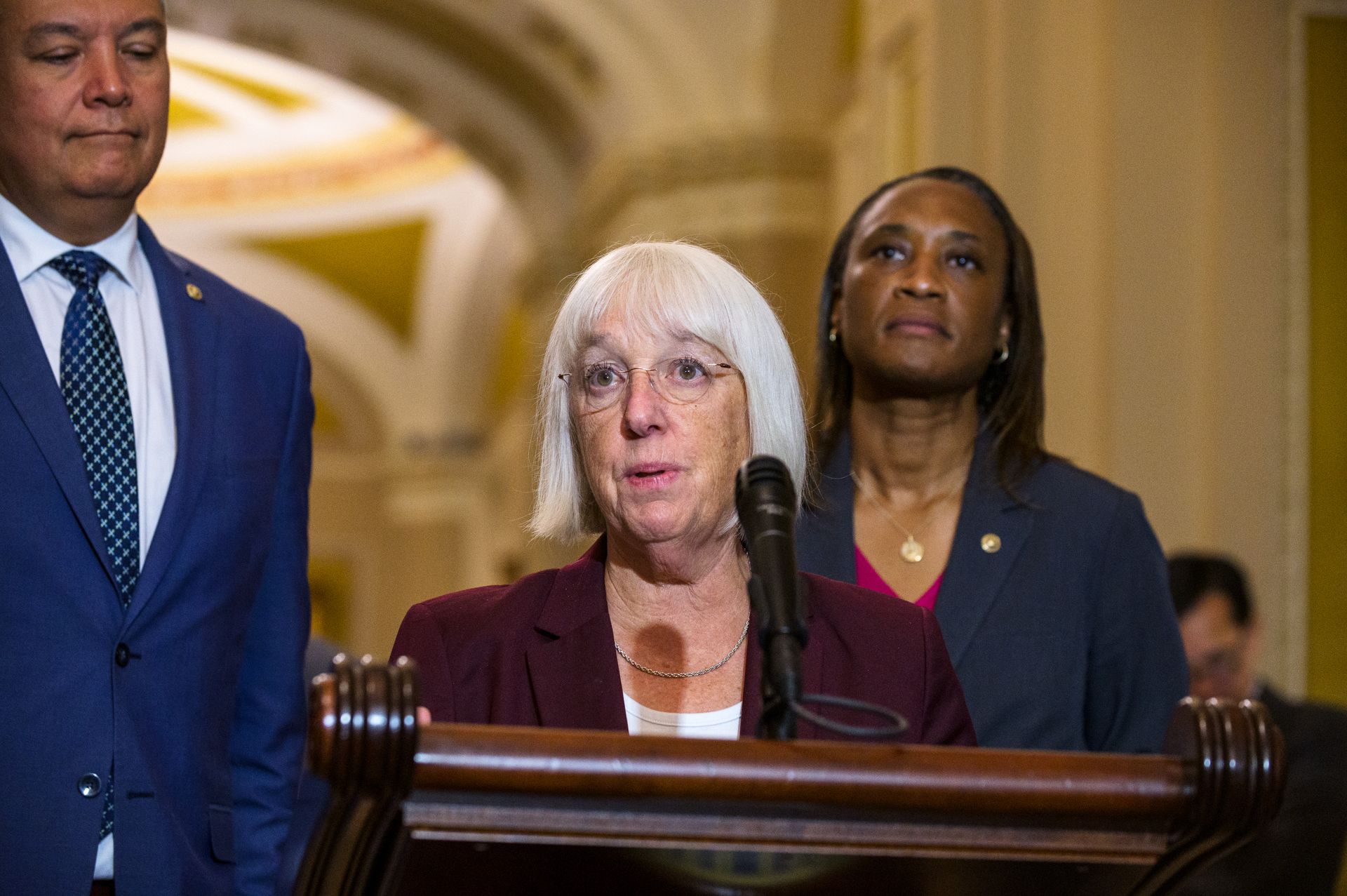Provisions Senator Murray negotiated as top Democrat on HELP Committee to regulate PBMs included in government funding bill, alongside legislation to reauthorize Murray-authored SUPPORT Act, teaching health centers
Washington DC – Today, U.S. Senator Patty Murray (D-WA), former Chair of the Senate Health, Education, Labor, and Pensions (HELP) Committee, released the following statement on the inclusion of provisions she authored to require greater oversight and price transparency from Pharmacy Benefit Managers (PBMs) in the government funding legislation released today, which Congress will consider this week.
The provisions Murray authored will require PBMs to provide detailed data on prescription drug spending to group health plans and issuers, and fully pass on 100 percent of drug rebates and discounts to the employer or health plan they negotiate on behalf of. Overall, these provisions to tighten regulations on PBMs in the commercial marketplace will increase price transparency for prescription drugs and lower drug costs for consumers. These provisions were built from the bipartisan Ley de menores costos de atención médica de 2019 Senator Murray authored with Senator Lamar Alexander (R-TN) when they led the Senate HELP Committee.
The government funding legislation also reauthorizes a number of key health care programs that have been longtime priorities for Senator Murray—including a five-year reauthorization of the SUPPORT Act, legislation to combat the opioid crisis that Senator Murray negotiated and passed in 2018 as the top Democrat on the HELP Committee. Murray has been pushing to reauthorize the SUPPORT Act since it expired, and last fall she introduced legislación bipartidista to reauthorize provisions of the legislation to research and prevent substance use disorder among pregnant and postpartum women. Also included in the government funding legislation was a five-year extension of Teaching Health Center Graduate Medical Education (THCGME), a program Senator Murray has largo soportado and secured funding for to bolster the primary care health workforce.
“Reforming the practices of Pharmacy Benefit Managers to crack down on price-gouging and lower drug costs for Americans has been a yearslong effort—and I’m proud that bipartisan reforms I negotiated to require more oversight and price transparency from PBMs, and ensure PBMs pass on 100 percent of the drug rebates they negotiate, will finally be passed into law. These commonsense reforms will stop prescription drug middlemen from unfairly jacking up prices and increase transparency—resulting in lower health care costs and more Americans being able to afford the medications they need to stay healthy.
“I’m also glad this package includes a five-year reauthorization of my SUPPORT Act—a landmark investment we made in 2018 to tackle the opioid epidemic, that has helped thousands of Americans get the treatment and support they need in the years since. I’ve been pushing hard to reauthorize the SUPPORT Act to ensure the community programs and other initiatives we established in the law can continue to serve people who are struggling with substance use disorder. The recent spike in the opioid death rate in Washington state is an all-too-painful reminder of what’s at stake—we cannot take our eye off the ball for a moment when it comes to addressing this crisis and getting communities the resources they need to prevent overdoses.
“Moreover, while the reauthorization of our Teaching Health Centers is absolutely critical, it is past time to extend funding for this critical program permanently. Our Teaching Health Centers are an important pipeline to help communities everywhere in America train more doctors and bring more primary care physicians and dentists to every part of the country. I plan to advocate strongly for a permanent reauthorization of our Teaching Health Centers in the next Congress.
“Finally, while this package includes some good progress—I will keep pushing to extend the tax credits that have lowered health care costs for families across the country despite Republican opposition. Democrats will keep fighting for policies that make health care more affordable even while Republicans are focused on massive, deficit busting tax cuts for billionaires and giant corporations.”
As the top Democrat on the HELP Committee, Senator Murray authored bipartisan legislation to tighten regulations on PBMs as part of herLey de menores costos de atención médica de 2019 with Senator Alexander. Murray successfully passed certain provisions of the Ley de menores costos de atención médica into law as part of previous legislative efforts and has worked consistently since to get other efforts—including PBM reform—passed into law.
Senator Murray led passage of the original SUPPORT Act as top Democrat on the HELP Committee in 2018, working with colleagues on both sides of the aisle in the House and Senate to develop the bipartisan bill which includes a package of solutions to help address the root causes and ripple effects of the opioid crisis. The SUPPORT Act came together after months of bipartisan work from Senator Murray and her colleagues to find ways to help curb substance use disorders in communities ravaged by the opioid crisis in Washington state and across the nation. The legislation included several provisions Senator Murray fought for to support children born to mothers battling substance use disorder, including trauma-informed care programs and increased access to mental health care for children.
Murray has long supported and pushed to reauthorize the Teaching Health Center Graduate Medical Education (THCGME), and last Congress, as Chair of the HELP Committee, Senator Murray introduced bicameral legislation with House Energy and Commerce Committee Chairman Frank Pallone (D-NJ) to permanently authorize the Teaching Health Center Graduate Medical Education (THCGME) program to support the training of primary care medical and dental residents with a focus on supporting residents in high-need communities.
###


